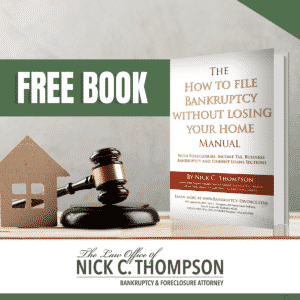Did you know that student loan bill collectors are often paid over $100,000 a year to put you into loans and rehabilitation programs that are neither reasonable nor affordable? In fact, student loan collectors are paid like the mortgage industry servicers who violate the law and regulations.
Student loan collectors are paid by charging fees and putting students into rehabilitation plans. They earn money from high costs loans. When sued they respond they have no duty to the students.
 Student Loan Rehabilitation Law New Regulations
Student Loan Rehabilitation Law New Regulations
But the Department of Education (DOE) issued new regulations affecting student loan rehabilitation effective July 1, 2014. These regs are applicable to FFEL and Direct Loans. As of July 2014, loan holders will initially calculate the reasonable and affordable payment amount using the income-based repayment (IBR) formula. This does not put borrowers into income-based repayment loans; it only uses the IBR formula to calculate the rehabilitation payment. Usually, a borrower can have the loan declared current as if it was never in default by completing 9 of 10 payments in a rehabilitation program. Borrowers can only enter into an IBR (income-based repayment loan/plan) after they get out of default.
The new formula for rehabilitation will be the current IBR formula based on payments no higher than 15% of discretionary income, even though some borrowers may now have IBR plans based on a 10% threshold. The formula can cause a 0 payment, but regulations state the borrower must pay at least $5/month. The borrower can object to the amount calculated by the lender. Then loan holder must recalculate the payment based solely on the information on an approved form.
⎆ Collectors must offer reasonable and affordable payment plans
Current regulations require collectors to offer reasonable and affordable payment plans. Yet collectors routinely violate the law and tell borrowers they must make payments beyond what they can afford because they make commissions on the fees.
DOE admits their collection agencies first try to get defaulted borrowers to pay the total defaulted debt. They then attempt to negotiate payments as close to the ten-year standard payment amount as the borrower can pay. The problem with this is that compensation is paid to collectors only if the rehabilitation plan requires borrowers to make higher minimum payments.
The 2009-Student Loan Collection Procedures manual for the agency requires payments must be reasonable and affordable. Furthermore, this data must be based on the amount owed and on the borrower’s total financial circumstances. The “amount owed” criteria is not in the current regulations, so affordability is the only standard.
The new rules change the commission system. We do not know all of the details because DOE refuses to release the collection agency manual. This manual is important because it shows the allowable collection practices.
However, the fact remains that the Department pays full commissions to collectors if the borrower’s rehabilitation payment is based on income-based repayment (IBR) formula or a percentage of the loan balance.
⎆ Understanding student loan rehabilitation
The borrowers have always been able to pay only a reasonable and affordable amount. There should be no dramatic shift based on what the law says. The drama occurs because collectors are now more likely to tell borrowers the truth. After all, they don’t have to sacrifice their profits to do so.
It’s a good outcome if collectors follow the law. Additionally, there are other ways the commission system rewards collectors to steering borrowers into programs that are not in their best interests.
Besides the positive steps in these final rules, the Department must make its contracting and commission system transparent and ensure collectors are complying with all laws and regulations.
The problem is that borrowers can’t get truthful and unbiased information. Instead, they get the information that profits the collectors the most. The goals of getting students out of default and into an affordable loan appear impossible as long as the government compensates private collection agencies for collecting as much as possible, but pays them zero to safeguard the borrower rights.
 Resources for Student Loans
Resources for Student Loans
Discharge Private Student Loans in Bankruptcy • Video
Means Test Qualifying for a Kentucky Chapter 7 • Video
How to Manage Student Loans Collections • Video
Bankrupt or Discharge Student Loans
Student Loan Rehabilitation Law New Regulations
Do you need help managing your student loan? Contact my office right away to start the conversation. Nick C. Thompson, Attorney: 502-625-0905.



